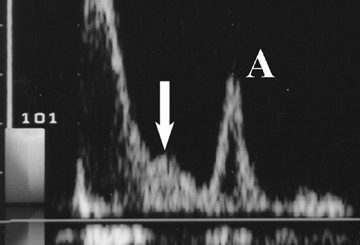Splenomegaly And Hypersplenism
Contents
- 1 All are true of splenic abscess except
- 2 Diagnostic features of a splenic abscess includes all except
- 3 Classic Fakunle’s major criteria for hyper-reactive malarial splenomegaly syndrome (HMS) includes all except
- 4 Most common cause of hypersplenism is
- 5 All are true of splenomegaly except
- 6 In short
- 7 Largest lymphoid organ
- 8 Wiskott-Aldrich syndrome protein
- 9 Phagocytosis
- 10 Hypersplenism
- 11 Liver transplantation
- 12 Vaccinations prior to splenectomy
All are true of splenic abscess except
A. Monomicrobial origin in more than 50% of cases
B. High mortality reaching more than 70%
C. Bimodal age distribution
D. Burkholderia pseudomallei is a cause of splenic abscesses in predisposed individuals
Diagnostic features of a splenic abscess includes all except
A. Leukocytosis with a left shift
B. Elevated left hemidiaphragm in plain radiographs
C. Increased echogenicity in USG
D. Left-sided pleural effusion in CT
Classic Fakunle’s major criteria for hyper-reactive malarial splenomegaly syndrome (HMS) includes all except
A. Persistent gross splenomegaly extending more than 10 cm below the costal margin
B. Elevated anti-malarial antibodies
C. IgG titre >2 SD above the local mean value
D. Favorable response to long-term malaria prophylaxis
Most common cause of hypersplenism is
A.Systemic lupus erythematosus
B.Splenic lymphosarcoma
C.Post-viral hepatitis cirrhotic portal hypertension
D.Hereditary spherocytosis
All are true of splenomegaly except
A. Fecal urobilinogen is increased in Hereditary spherocytosis
B. Splenectomy in children is generally delayed until 6 years of age
C. Intracellular precipitates (Heinz bodies) are seen in Cooley’s anemia
D. Enormous splenic enlargement excludes Gaucher’s disease
In short
Largest lymphoid organ
The spleen is the largest lymphoid organ, and is an important site for the production of antibodies. Antigens unprocessed by the liver may enter the periphery of splenic lymphoid follicles producing antibodies which may destroy blood cells.
Wiskott-Aldrich syndrome protein
The Wiskott-Aldrich syndrome protein (WASP) is an essential cytoskeleton regulator found in the cells of the hematopoietic lineage that control the motility of leukocytes.
Phagocytosis
Macrophages have a strong ability for immune phagocytosis, and are the major form of phagocytes in the spleen.
Hypersplenism
In severe cases of splenomegaly and hypersplenism, splenectomy is performed to correct the effects of low blood cell and platelet counts.
Liver transplantation
Liver transplantation may reduce the splenic size and the portal pressure, decrease the risk factors of bleeding, and eventually eliminate hypersplenism.
Vaccinations prior to splenectomy
Vaccinations prior to splenectomy should cover – Streptococcus pneumoniae, Haemophilus influenzae, Neisseria meningitidis, Influenza vaccine.
Classic Fakunle’s criteria
Major criteria:
Persistent gross splenomegaly extending more than 10 cm below the costal margin, without any other apparent cause,
Elevated anti-malarial antibodies, IgM titre >2 standard deviations (SD) above the local mean value
Favorable clinical and immunological response to long-term malaria prophylaxis
Minor diagnostic criteria:
Hepatic sinusoidal lymphocytosis,
Normal cellular and humoral immune responses to antigenic challenge, including phytohaemagglutinin stimulation (PHA),
Hypersplenism, lymphocyte proliferation, occurrence within families or tribes.





